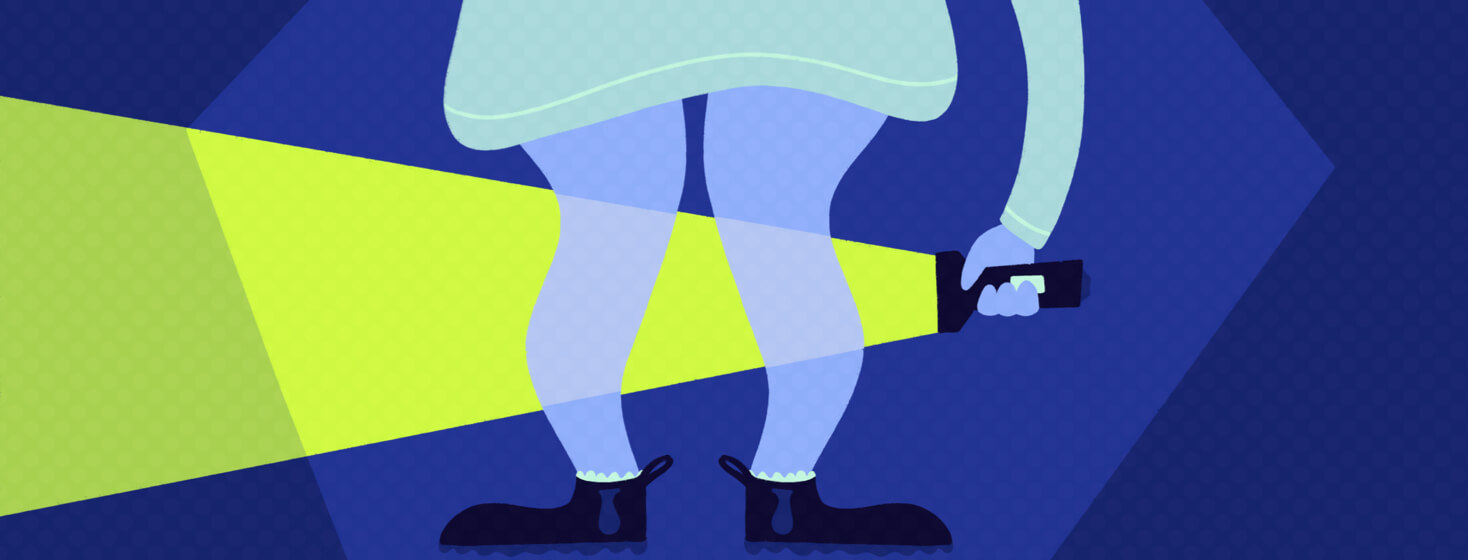Shining a Light on RLS
When you live with something every day of your life, it becomes easy to forget other people might not know what it’s like. In fact, it is possible that some people might never even have heard of it.
So it is with restless legs syndrome (RLS).
I just assumed everyone felt this way
I confess that I, too, was ignorant for a long, long time. While I suffered from the constant and incessant need to move, accompanied by a deep, longing ache in my lower back, I didn’t have the words to describe it as a condition. I did, in all honesty, just assume everyone felt that way. Isn’t that how things are? When you grow up with something – no matter how improbable – it feels normal because, well, it is normal – for you.
Restless legs are something I have experienced since I was a child, but like many things, it wasn’t as bad then as it is now. I just tried to manage it and assumed other people were managing it too – better than me most of the time, I thought.
I started noticing I was different
Sometime in my thirties, I came to the realisation that other people can actually sit still without effort. That sitting through a concert wasn’t a torturous process that had to be thought through beforehand — they just turned up and... sat.
I started to notice that I was different and accept that perhaps I wasn’t just terribly undisciplined and intentionally disruptive.
My RLS symptoms intensified during pregnancy
With each of my pregnancies, I had an increase in RLS symptoms, and when it came to the third time around I brought it up with a doctor. That was when I first heard the term "restless legs."
It was described as a symptom – not a condition. I came to believe it was just a normal pregnancy symptom, much like heartburn, and I needed to do nothing about it. Like so much of pregnancy, it was to be endured. And it was not to be complained about. "This too shall pass" was the inference.
This too did not pass. A quarter of a century later and I still have very restless legs. And rest assured, I am no longer pregnant.
RLS is real and impacts quality of life
The marching beetles, fluttering butterflies, numbing needles, aching bones feelings of RLS are intensely personal and most definitely unpleasant. It is not something I would wish upon anybody, and so in many ways, I do not want people to understand. But I do want people to accept it is real and has a significant detrimental impact on quality of life.
RLS is a neurological condition that affects between 5 and 15 percent of adults, which also means 85 to 95 percent of people have no lived experience. That’s most of you. I think as a society it is easy to diminish situations that we do not understand. But at the end of the day, we all want to feel understood and accepted.
With awareness comes compassion and understanding
It is not easy living with active RLS. Sometimes we need people to be patient – allowing us to stand and walk when the norm might be to sit. Letting us stretch and move when tension in the legs gets too much. Listening when we need to talk.
Conversely, we who suffer need not do so in silence. By shining a light on the things that affect us, we can spread awareness. With awareness comes compassion and understanding. And who doesn’t want to live in a more compassionate and understanding world?

Join the conversation